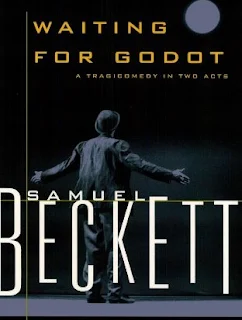Treatment of time in Waiting for Godot
The distinction between clock time and subjective time is one of the themes of the play, Waiting for Godot. The passage of time is not absolute but relative to one’s mental condition. The tramp’s doubt about ‘time’ makes the doubt their existence and their identity also. Their main problem is to make time pass in such a way that they are the least bothered by it. In the play neither time nor existence, nor reality, nor memory, nor the past has any meaning or significance. Acts are meaningless, time does not flow consecutively, memory seems deceptive, existence is an impression or perhaps a dream, happiness is acutely absent. The tramps, Vladimir and Estragon are on the point of being hollow men in a possibly hollow universe.
A live which is characterized by a complete aimlessness, may be called a ‘life without time’. Time springs from man’s needs and from his attempts to satisfy them. Life is temporal only because needs are either not yet satisfied or goals have already been reached, or objectives are still at one’s disposal. Now in Estragon’s and Vladimir’s lives, objectives no longer exist. For this reason in the play time does not exist either, and that is why events and conversations are going in circles. After a while this circular movement gives the impression of being stationary, and time appears to be standing still.
Keeping in mind the concept of time,
Beckett presents the second act which is but a slightly varied version of the
first. In the second he does not offer anything new or startling. We are deeply
surprised to see that scenes repeat themselves, and none of the characters is
aware of this repetition. They suffer a complete loss of memory, and even when
reminded of it, they remain incapable of recognizing that their experiences or
conversations are merely repetitions of yesterday’s events or talk.
The two tramps, Estragon and Vladimir
invent games to pass the time. Our playing of games is similar to taking off
shoes and putting them on again, our everyday existence, too, is nothing but
playing of games without real consequences. When Pozzo and Lucky enter the
scene, the tramps look upon them as privileged beings, because they are the
champions of time.
To sum up, it is in the act of waiting
that we experience the flow of time. When we are active, we tend to forget the
passage of time, but if we are waiting passively, we are confronted with the
action of time itself. The tramps wait for Godot whose coming will bring the
flow of time to a stop.



Oh! its a great content, I appreciate the efforts taken by the content writter. It will help many people in understanding.
ReplyDeleteSSC Exam Result 2020
PSC Result
Job Circular
JSC Exam Result
hey
ReplyDelete